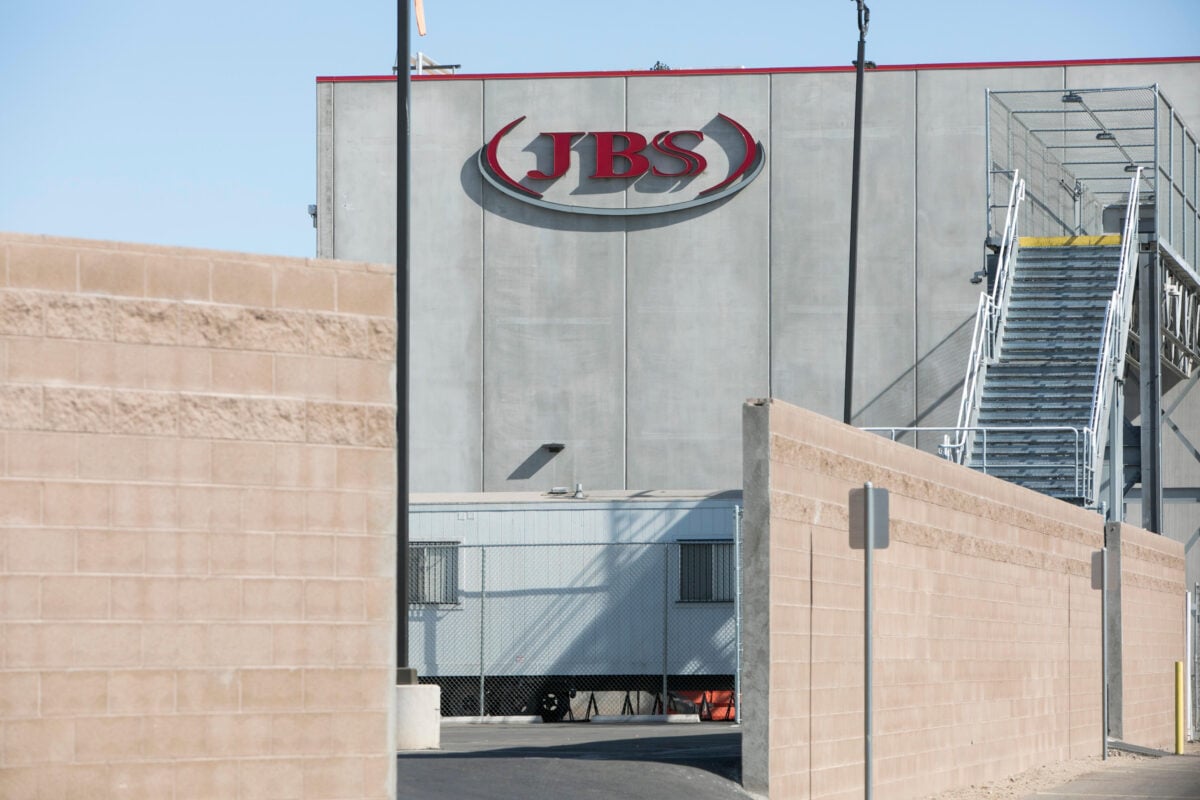The world’s largest meat producer is being sued by the state of New York for “greenwashing” its business practices.
New York’s attorney-general, Letitia James, filed the lawsuit against Brazilian meat giant JBS in February. James says JBS must be held accountable for “misleading consumers and endangering the planet.”
In 2021, JBS announced it was committed to reach net-zero greenhouse gas emissions by 2040. But it also plans to increase its meat production, which the attorney-general’s office says will increase its carbon footprint.
The company is already facing opposition from US senators and British MPs for its bid to be listed on the New York stock exchange. If it becomes a public company, JBS would have access to more capital, which the senators and MPs warn will allow it to do even more environmental harm.
Huge emissions and deforestation

As a major beef producer, JBS is responsible for a huge amount of greenhouse gas emissions. The Institute for Agriculture & Trade Policy (IATP) estimates they reached 421.6 million metric tons in 2021.
According to analysis by IATP, JBS’s emissions rose by 51 percent between 2016 and 2021. This was because of the significant increase in the number of animals in its supply chain. IATP says animals account for 90 to 97 percent of the emissions of meat producers.
JBS has also been repeatedly linked to deforestation in the Amazon rainforest. According to Mighty Earth, JBS is directly and indirectly responsible for hundreds of thousands of hectares of forest being razed for grazing pastures.
But JBS has made multiple public claims about the sustainability of its products while failing to accurately calculator its emissions. James alleges that the company has used “fake sustainability claims to boost sales.” Her office further said that JBS’s emissions calculations didn’t include those from Amazon deforestation. JBS’s current size and expansion plans also mean its “net zero” commitment “is not feasible.”
JBS backlash
Skepticism over JBS’s sustainability goals are growing. In 2023, the company was forced to pull several marketing claims after IATP flagged them to the US National Advertising Division.
In the wake of the New York state’s lawsuit, the Science-Based Targets initiative (SBTi), which evaluates companies’ net-zero targets, withdrew its approval of JBS’s 2040 target.






